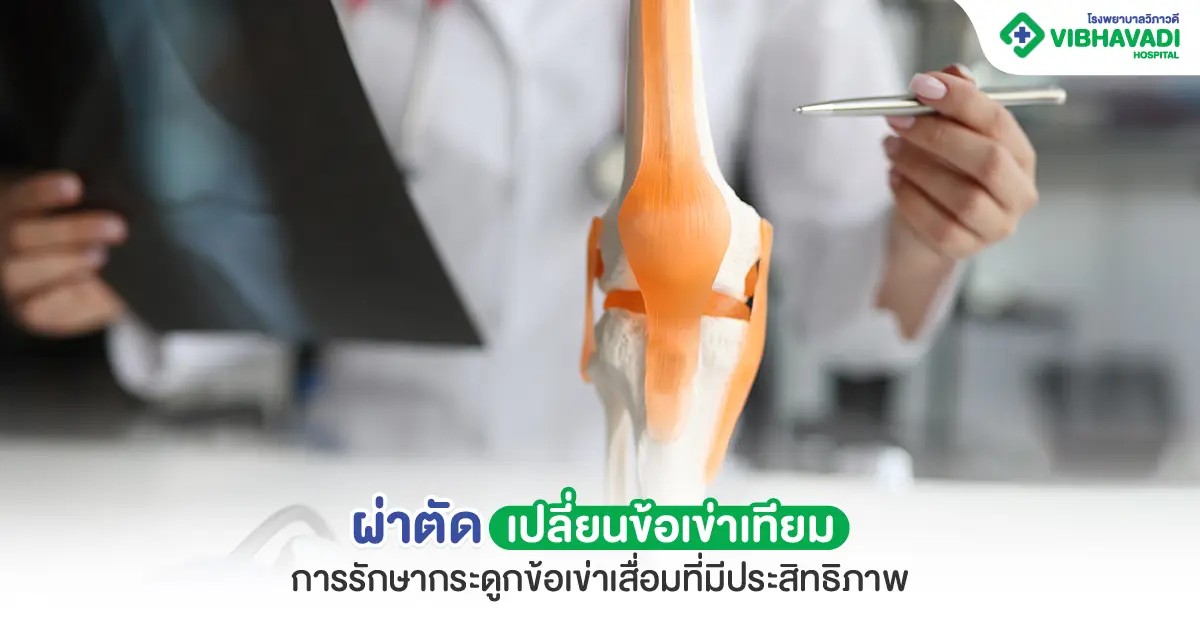Gastric Sleeve Surgery (Bariatric Surgery) for Weight Loss
Gastric Sleeve Surgery (Bariatric Surgery) for Weight Loss
Obesity is more than just a cosmetic concern—it’s a serious medical condition that increases the risk of other health problems such as heart disease, diabetes, high blood pressure, and certain cancers. When lifestyle changes such as diet and exercise are not enough to help with weight loss, bariatric surgery—specifically gastric sleeve surgery or sleeve gastrectomy—can be a life-changing option. Vibhavadi Hospital offers comprehensive care for patients seeking long-term weight loss solutions through this safe and effective surgical method.
Understanding Gastric Sleeve Surgery
What is Gastric Sleeve Surgery?
Gastric sleeve surgery, also known as sleeve gastrectomy or "เย็บกระเพาะลดความอ้วน" in Thai, is a type of bariatric surgery designed to aid in significant weight loss. This procedure involves removing approximately 75–80% of the stomach, leaving a narrow, sleeve-shaped tube. The reduction in stomach size limits food intake and affects hunger-related hormones, contributing to weight loss.
How It Works
The surgery works through two primary mechanisms:
Restriction: The smaller stomach can hold less food, which helps reduce caloric intake.
Hormonal Changes: The surgery alters hormones such as ghrelin (the “hunger hormone”), which plays a role in appetite, metabolism, and blood sugar control.
Who is a Candidate for Gastric Sleeve Surgery?
Eligibility Criteria
Gastric sleeve surgery is recommended for individuals who:
Have a Body Mass Index (BMI) ≥ 40, or
Have a BMI ≥ 35 with at least one obesity-related health condition such as type 2 diabetes, high blood pressure, or sleep apnea
Have unsuccessfully attempted weight loss through traditional methods
Are committed to long-term lifestyle changes post-surgery
Not Suitable For Everyone
The surgery may not be ideal for individuals with:
Certain gastrointestinal conditions
Severe heart or lung problems
Mental health disorders that may affect post-surgical behavior
Pregnancy or plans to conceive shortly after surgery
Health Risks of Untreated Obesity
If left unaddressed, obesity can lead to:
Type 2 diabetes
Cardiovascular disease
Stroke
Osteoarthritis
Sleep apnea
Fatty liver disease
Certain cancers
By addressing obesity early with the help of specialists, patients can reduce or even eliminate many of these risks.
The Gastric Sleeve Surgery Procedure
Before the Surgery
Patients undergo a comprehensive evaluation which includes:
Nutritional and psychological assessments
Blood tests and imaging
Consultations with a multidisciplinary medical team
Lifestyle changes such as dietary adjustments, quitting smoking, and moderate physical activity are encouraged pre-operatively.
During the Surgery
The surgery is performed laparoscopically under general anesthesia
Small incisions are made, and surgical instruments are used to remove part of the stomach
No foreign devices are implanted
The procedure typically takes 1–2 hours
After the Surgery
Hospital stay: Usually 2–3 days
Recovery: Most patients return to normal activities within 2–4 weeks
Diet: Progression from liquids to pureed and then soft foods over several weeks
Weight loss: Most patients lose 50–70% of excess weight within the first year
Benefits of Gastric Sleeve Surgery
Significant long-term weight loss
Improvement or resolution of obesity-related conditions (diabetes, hypertension)
Increased energy and mobility
Enhanced quality of life
Reduced risk of mortality from obesity-related diseases
Risks and Complications
While the procedure is generally safe, it carries potential risks, including:
Infection or bleeding
Leaks from the stapled stomach
Nutritional deficiencies
Acid reflux
Blood clots
These risks are minimized when performed by experienced surgical teams with comprehensive aftercare support.
Vibhavadi Hospital’s Bariatric Surgery Program
Expert Multidisciplinary Team
Our program is led by highly experienced bariatric surgeons, supported by:
Endocrinologists
Dietitians
Psychologists
Specialized nurses
Physiotherapists
Comprehensive Pre- and Post-Surgical Care
We offer end-to-end services including:
Initial assessments and BMI calculation
Personalized weight loss planning
Minimally invasive laparoscopic procedures
Postoperative diet guidance and follow-up
Long-term monitoring to ensure sustained results
Modern Operating Facilities
Vibhavadi Hospital is equipped with:
Advanced laparoscopic surgery equipment
High-standard operating theaters
Internationally accredited safety protocols
Inpatient and outpatient follow-up systems
Booking an Appointment
Patients can easily schedule a consultation by:
Calling our contact center at 02-561-1111
Visiting www.vibhavadi.com/th
Using our online booking form or live chat feature
Walk-in assessments are also available at our Obesity and Bariatric Surgery Clinic.
Insurance Coverage and Costs
What’s Included
Our surgery packages may include:
Pre-operative assessments
Surgeon’s fee
Anesthesia
Hospital stay
Post-operative follow-ups
Insurance & Corporate Plans
Coverage depends on individual insurance policies
The hospital works with major insurance providers
Financing options and installment plans may be available
Contact our finance team for a personalized cost estimate and eligibility review.
Long-Term Lifestyle Changes
Diet and Nutrition
Patients must follow lifelong nutritional guidance, including:
Eating small, frequent meals
Avoiding sugary and high-fat foods
Supplementing with vitamins and minerals
Exercise
Regular physical activity is essential to maintain weight loss
Patients are encouraged to gradually increase activity levels under professional guidance
Mental and Emotional Health
Counseling is available to support emotional adjustment
Group support programs help patients stay motivated
Frequently Asked Questions (FAQ)
Is gastric sleeve surgery reversible?
No. Unlike adjustable gastric banding, this procedure is irreversible as part of the stomach is permanently removed.
Will I need to take supplements after surgery?
Yes. Patients are advised to take multivitamins, calcium, vitamin B12, and iron to prevent deficiencies.
How much weight will I lose?
Most patients lose 50–70% of their excess weight within 12–18 months, depending on adherence to lifestyle changes.
Can I get pregnant after surgery?
Yes, but it's recommended to wait at least 12–18 months before conceiving to ensure stable weight and nutritional health.
Is it safe for older adults?
While age is a factor, the procedure can be safely performed on older individuals following a thorough pre-operative assessment.
Related Services at Vibhavadi Hospital
Obesity & Weight Management Clinic
Endocrinology and Metabolism Center
Diabetes Clinic
Gastrointestinal Surgery Services
Dietetics and Nutrition Counseling
Psychological Support Services
















